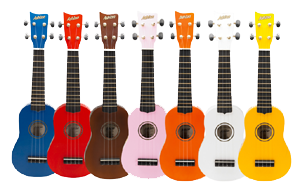 Adapted from Jeff Haden's excellent piece over at Inc.
Adapted from Jeff Haden's excellent piece over at Inc.
You may remember the lesson from school: denotation vs connotation. For those of you for whom it may be hazy, denotation is the dictionary definition of the word, and the latter is the association that the word evokes. Thus, while "thin," "scrawny," "willowy," and "lean" may all roughly mean the same thing, I think we can all identify which word we'd rather not be described as.
This principle of thoughtful word choice also applies in sales. Whether by email, phone, or face-to-face communication, language does the heavy lifting in the sales process. Hopefully, you're already well-informed and enthusiastic about your company's product, but how do you translate this into concrete sales? How do you convince a potential buyer who may be hemming and hawing a bit? Mind your words.
- Benefits, not Specifications: I wanted to buy my husband a ukulele, but the only thing I about musical instruments is that I like to listen to them played well. So when I went to the music store, I felt like an imposter. Who knew there are so many kinds of ukuleles? The sales guy, perhaps sensing my panic, quickly allayed my fears. He asked me how much I wanted to spend and what level of player my husband was. He also asked me if I was a player. Using my responses to these questions, he quickly narrowed my search down to three ukuleles and explained the pros and cons of each in non-musician-friendly terms. The salesman correctly gauged the amount of information that I needed to make an informed decision. He didn't confuse me with dimensions, materials, or obscure facts. I bought on the spot.
- Value, not Price: I recently had to find a caterer for a party. One offered a lot of food for a relatively inexpensive price, but I would have had to pick up the food, rent warming tables and dinnerware, and hire waitstaff. The other was more expensive, but they offered setup, takedown, all dinner and serveware, and staffing. My peace of mind was far more valuable to me than getting a cheaper price, so I went with the more expensive caterer.
- Show, not Learn: Wanting to join the 21st century, my uncle recently bought an iPad. Since he's never used a computer, the technology is not at all intuitive for him. He got the manual and iPad for Dummies but still couldn't get the hang of it. The language was too instructive, too dry. I then remembered how the Apple store offers in-store tutorials. These hands-on workshops allow users to be shown how to use their products.
- Emotion, not Reason: "Say Yes to the Dress," a reality show that takes place in an upscale bridal boutique in Atlanta, is a great example of this principle. One of the questions the sales team always asks its clients is, "How does this dress make you feel?" Women whose budget was $5,000 may end up buying a $10,000 dress instead.
- You, not I: As someone who used to work on commission, I know how sales goals can change how you approach a customer. However, many people can sniff out selfish intent. Try to find a way in which the sale really will positively impact your customer.


 Adapted from Jeff Haden's excellent piece over at
Adapted from Jeff Haden's excellent piece over at 

